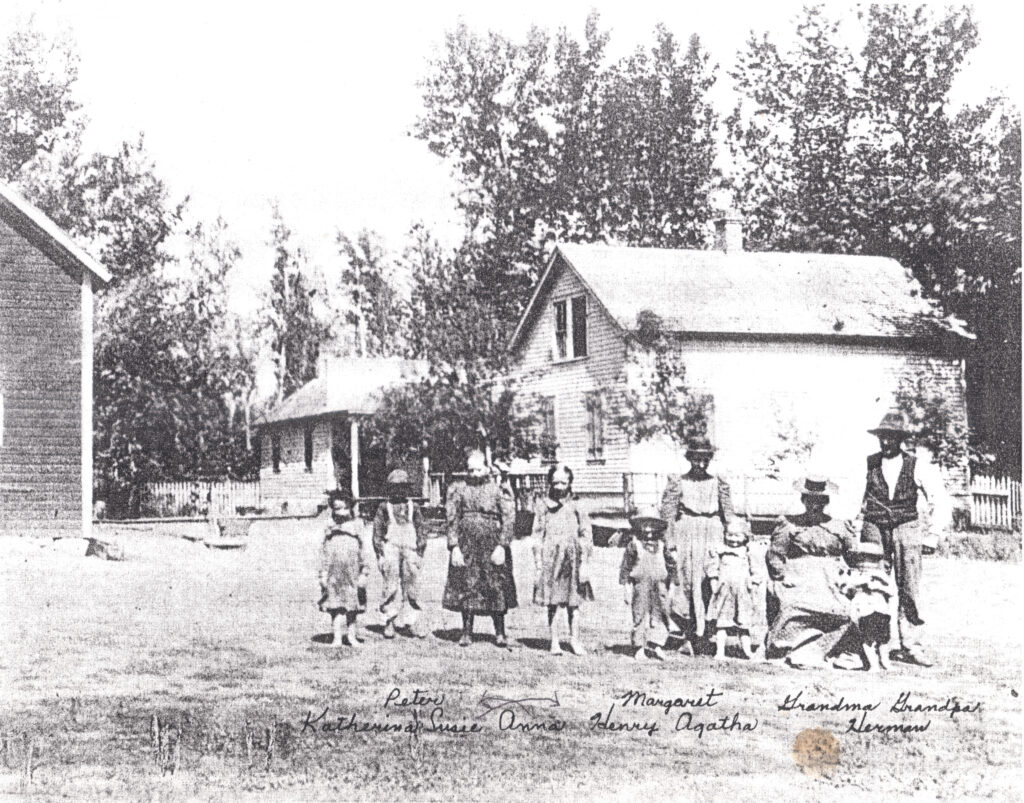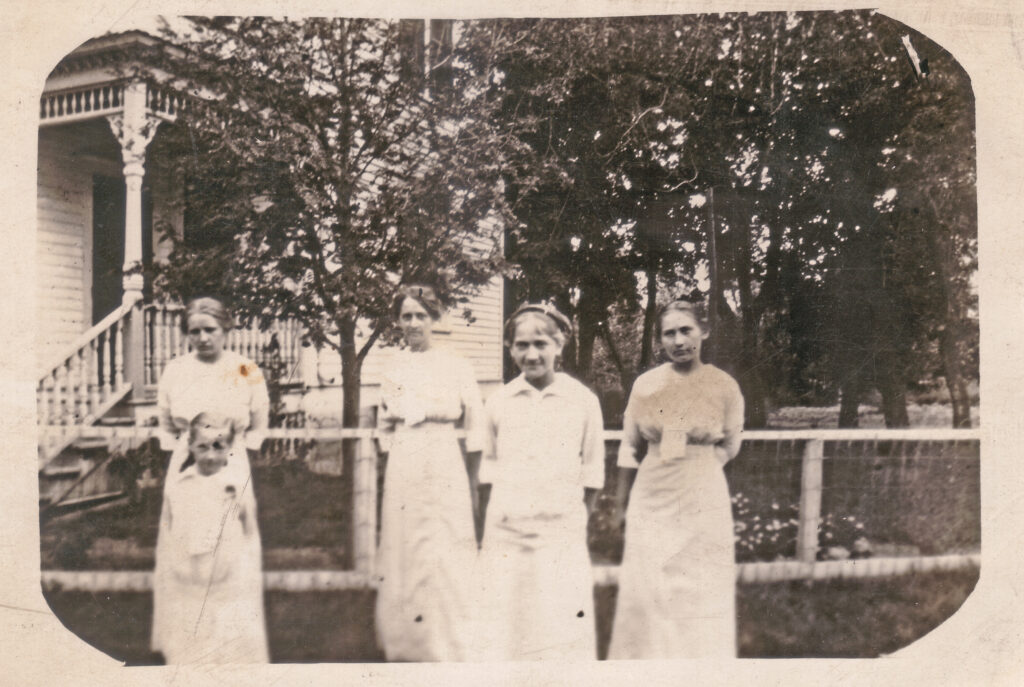Introductory Notes
Having been introduced to Dietrich Olfert in the previous two installments, we now hear from Kathrina Franz Olfert about the early years of her life. Kathrina is Oma’s aunt, sister of my grandmother, Agatha Franz Toews. In other words, we can learn much about Grandma Toews through Kathrina’s account of her early years. Kathrina was three years old when Grandma Toews was born. Grandma Toews was not yet six years old when their mother, Susanna Teichroew Franz, died. One detail which Kathrina does not mention in her account is that on February 21, 1900, their mother gave birth to a son who died the day he was born.
My great-grandfather, Peter H. Franz, married Susanna Voth Harder just over a year after losing his first wife. She was a widow who had experienced the loss of both husband and daughter. Her daughter died at 7 years of age in March, 1901. Susanna Voth Harder turned 33 years of age less than two weeks after marrying Peter H. Franz. He was 43.
Peter Franz and his second wife added four more children to their family. They had three sons in succession: Albert, John and David. Their last child was a daughter whom they named Martha Helen, born June 30, 1908.
When Kathrina mentions her Grandpa Franz, she is referring to Heinrich Franz (1828-1882), my great-great grandfather. With those background details, let’s let Kathrina and Dietrich tell their story.
Kathrina’s Story
I, Kathrina Franz, was born on my parents’ farm (Peter H. Franz) about 3½ miles northeast of Mountain Lake. All my brothers and sisters were born and grew up in the same house, which still stands but was remodeled and enlarged. David Krauses lived there for a while. My birth date is January 18, 1893. My ancestors came from Germany and then later from South Russia.

Grandma Toews (Agatha) is the young girl at Mrs. Franz’ right.
I went to school ½ mile east of the house, on the corner of my father’s farm. I was eight years old when our mother died on November 17, 1901, and the funeral was November 20. We had beautiful weather that day. My mother died when she was 40 years old from complications after the birth of our sister, Marie. Marie was such a cute baby and was healthy. Our aunt, Mrs. Dickman, who was a widow, took Marie with her to Mt. Lake and took care of her until our father married another Susanna. We were nine children, and Margaret, the oldest at 17 years of age, took over until the stepmother came. That first winter sister Margaret really had her hands full, as all of us children got the measles. Father than married Susanna and Marie came back to live with us. (D. M. and Kathrina became cousins through this marriage.) My step mother was very young and didn’t quite know what to do with such a large, instant family. The older children were not much younger than she was. With great love and patience we learned to become a family.

Susanna is in the middle, next to Marie, with Kathrina on the far right.
In fall one of the chores that both D. M. and Kathrina each helped our families with was the shucking of the dry corn. We would start out before daylight and go out to the fields. As it started to get light we would start picking as soon as we could see the ears. As we picked they would husk the ear and throw it into the wagon. Spoken commands kept the horse and wagon abreast of them working. When the wagon was full it was shoveled by hand into the tall corn crib. Kathrina remembers how hard it was to get the corn up over the high walls. Often this unloading was done by lantern light after it was too dark to pick anymore. Pay, if you worked for others, was 4 cents a bushel, often picking up to fifty bushels a day. Kathrina’s brother, Henry Franz, bought a corn sheller and hired out to shell corn. Many people around the Mt. Lake area remembered him from those days.
One of Kathrina’s memories is of spending holidays with her grandfather at Easter and Christmas. Grandfather Franz was living with a son and daughter-in-law. The daughter-in-law was not much of a housekeeper, and as soon as she could, would go out to the field to work with the men. She would rather help in the harvest or spread manure than do housework. My sisters and I were left with the task of cleaning the house and cooking for the entire family for the holiday. We would go and start one to two days before to get everything ready. How I hated to do someone else’s housework. In Minnesota there is much rust in the water. The pail that was used to bring water into the house to use for cooking was all red and dirty. Well, first we had to clean everything before we could get ready. When the lady of the house came in from the field for lunch, she commented on how clean the bucket and everything was, and would we come and do it all again for her.
At Christmas each child had to go to Grandpa Franz and say a poem or a wish that they had memorized in German. The food served was the typical German recipes: very strong boiled coffee, zwiebach, shinka flesh, pluma moos.